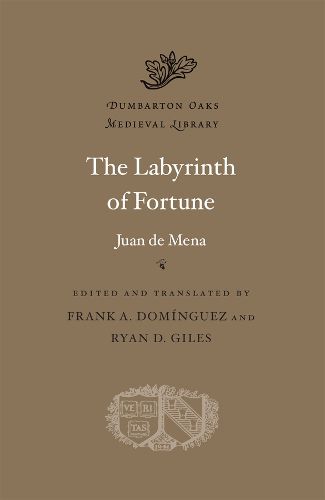Readings Newsletter
Become a Readings Member to make your shopping experience even easier.
Sign in or sign up for free!
You’re not far away from qualifying for FREE standard shipping within Australia
You’ve qualified for FREE standard shipping within Australia
The cart is loading…






A classic, Dantesque political epic from medieval Spain that inspired Cervantes and Gongora, in its first English translation.
Why do the injustices of the past still afflict the present? With this question, Juan de Mena is transported to heaven by a vision in the Dantesque The Labyrinth of Fortune. Composed in 1444 by Mena, a royal chronicler and Latin secretary in the court of Juan II of Castile, El Laberinto de Fortuna became the most important political allegory of medieval Spain. Allegorizing the past, present, and unknowable future through the figure of Providence, the poem reflects on the contentious kingship of Juan II and frames the Reconquest of Moorish territories-the foundational mythos of the emerging nation-as a virtuous, sacred task that would restore justice and the moral order because it fulfills a destiny ordained by God. This is the first English translation of a masterpiece that enriched the Spanish language with a density of learned allusions and a new Latinate humanistic style that deeply influenced subsequent writers such as Miguel Cervantes and Luis de Gongora.
$9.00 standard shipping within Australia
FREE standard shipping within Australia for orders over $100.00
Express & International shipping calculated at checkout
A classic, Dantesque political epic from medieval Spain that inspired Cervantes and Gongora, in its first English translation.
Why do the injustices of the past still afflict the present? With this question, Juan de Mena is transported to heaven by a vision in the Dantesque The Labyrinth of Fortune. Composed in 1444 by Mena, a royal chronicler and Latin secretary in the court of Juan II of Castile, El Laberinto de Fortuna became the most important political allegory of medieval Spain. Allegorizing the past, present, and unknowable future through the figure of Providence, the poem reflects on the contentious kingship of Juan II and frames the Reconquest of Moorish territories-the foundational mythos of the emerging nation-as a virtuous, sacred task that would restore justice and the moral order because it fulfills a destiny ordained by God. This is the first English translation of a masterpiece that enriched the Spanish language with a density of learned allusions and a new Latinate humanistic style that deeply influenced subsequent writers such as Miguel Cervantes and Luis de Gongora.